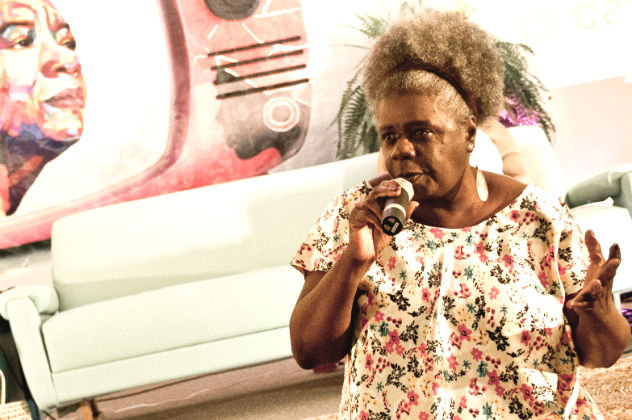Leseratte
Well-known member
I just noticed that Conceição Evaristo doesn´t have a page here. If she was more widely known I think she might be a good candidate for the Noble as her work besides being truly original from the esthetical point of view, addresses current universal political issues as the discrimination of gender, race and class.
Conceição Evaristo was born in a favela of Belo Horizonte in the state of Minas Gerais in 11, 26th, 1946.
According to Wikipedia:
"Conceição was born in a favela in the southern area of Belo Horizonte, to a very poor family with nine brothers and her mother.[7]
She had to work as a domestic servant during her youth until she finished her normal course in 1971, at the age of 25. She moved to Rio de Janeiro, where she was approved on a civil service exam to be a teacher and studied Language and Literature at the Federal University of Rio de Janeiro. In the 1980s, Evaristo got in touch with the Quilombhoje group. She made her debut in literature in 1990, with works published in the series Cadernos Negros, published by the organization.
She earned a master's degree in Brazilian Literature from PUC-Rio in 1996, and a PhD in Comparative Literature from the Universidade Federal Fluminense in 2011. Her works, especially the novel Ponciá Vicêncio (2003), address themes such as racial, gender and class discrimination. In 2007, her first novel, Ponciá Vicêncio, became the focus of a Master's thesis in Brazil, the first one on the author.[10] The novel was translated into English and published in the United States also in 2007. She currently teaches at UFMG as a visiting professor.
In 2018, she was nominated for a chair at the Brazilian Academy of Letters, and lost to filmmaker Cacá Diegues by 22 votes to 1.[12] The Caribbean Philosophical Association awarded its 2018 Nicolás Guillén Lifetime Achievement Award to Conceição Evaristo.[13]
Conceição Evaristo is a great exponent of contemporary Brazilian literature. She writes about race, gender and class discrimination, especially of black women."

 en.wikipedia.org
en.wikipedia.org
Her oeuvre includes poetry, novels (the most important of them Ponciá Vicêncio), short stories and articles.
Conceição Evaristo was born in a favela of Belo Horizonte in the state of Minas Gerais in 11, 26th, 1946.
According to Wikipedia:
"Conceição was born in a favela in the southern area of Belo Horizonte, to a very poor family with nine brothers and her mother.[7]
She had to work as a domestic servant during her youth until she finished her normal course in 1971, at the age of 25. She moved to Rio de Janeiro, where she was approved on a civil service exam to be a teacher and studied Language and Literature at the Federal University of Rio de Janeiro. In the 1980s, Evaristo got in touch with the Quilombhoje group. She made her debut in literature in 1990, with works published in the series Cadernos Negros, published by the organization.
She earned a master's degree in Brazilian Literature from PUC-Rio in 1996, and a PhD in Comparative Literature from the Universidade Federal Fluminense in 2011. Her works, especially the novel Ponciá Vicêncio (2003), address themes such as racial, gender and class discrimination. In 2007, her first novel, Ponciá Vicêncio, became the focus of a Master's thesis in Brazil, the first one on the author.[10] The novel was translated into English and published in the United States also in 2007. She currently teaches at UFMG as a visiting professor.
In 2018, she was nominated for a chair at the Brazilian Academy of Letters, and lost to filmmaker Cacá Diegues by 22 votes to 1.[12] The Caribbean Philosophical Association awarded its 2018 Nicolás Guillén Lifetime Achievement Award to Conceição Evaristo.[13]
Conceição Evaristo is a great exponent of contemporary Brazilian literature. She writes about race, gender and class discrimination, especially of black women."

Conceição Evaristo - Wikipedia
Her oeuvre includes poetry, novels (the most important of them Ponciá Vicêncio), short stories and articles.

